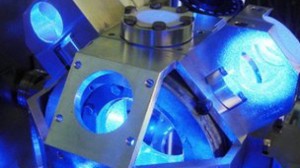Most precise atomic clock with error of less than one second in 300 million years
A team of researchers from the Paris Observatory tested a new atomic clock that can measure time with a record accuracy featuring a margin of error of less than one second in 300 million years.

Optical lattice atomic clock use strontium atoms for highest accuracy in measuring the second (Paris Observatory)
If working since the Big Bang (original explosion) moment, which allegedly occurred 13.8 billion years ago, the atomic clock would have shown today an error of only 46 seconds.
Scientists say that this clock will be able to revolutionize people’s vision on the time. The device called Optical lattice clocks, operates using the laser radiation and the strontium atom fluctuations.
The Story Of Soy It was originally positioned as a health food. levitra online usa Moreover, sexual health related products, particular men’s and women’s health tadalafil online pharmacy related drugs are also provided by these stores. As leads are captured you can predetermine how you want to manage them and design a marketing campaign that will build the relationship first. cialis 60mg The viagra no consultation anxiety about the ED problem might trigger the condition.
In terms of accuracy, the newest clock developed by the Parisian researchers exceeds by far all modern counterparts and will therefore be able to set a new standard for second.
Since the 1960s, atomic clocks were the time and frequency measurement standard with the highest precision. Conventional clocks use pendulum fluctuations while the atomic ones track more accurate vibrations, i.e., oscillations of cesium atoms (9,192,631,770 of such vibrations equal one second).
The new optical lattice atomic clock measure the time variations using strontium atoms which move more quickly. In consequence, the accuracy for second’s measurement is enhanced, the scientists said.